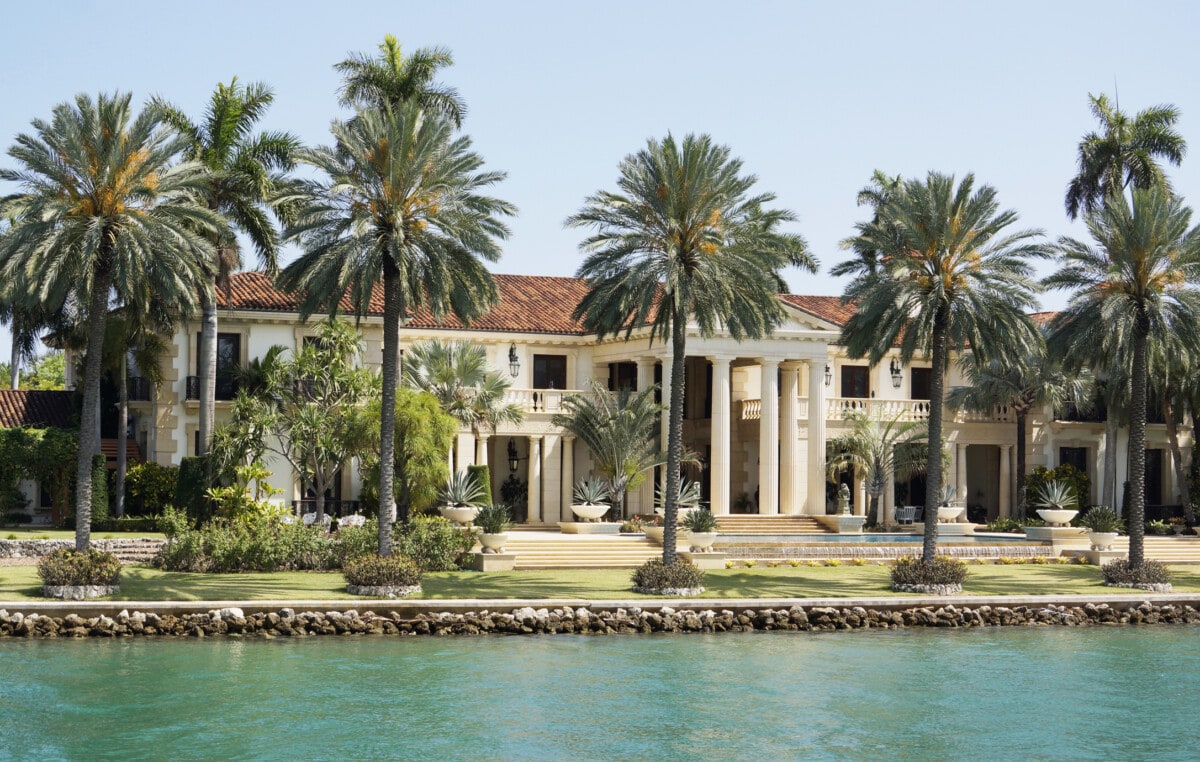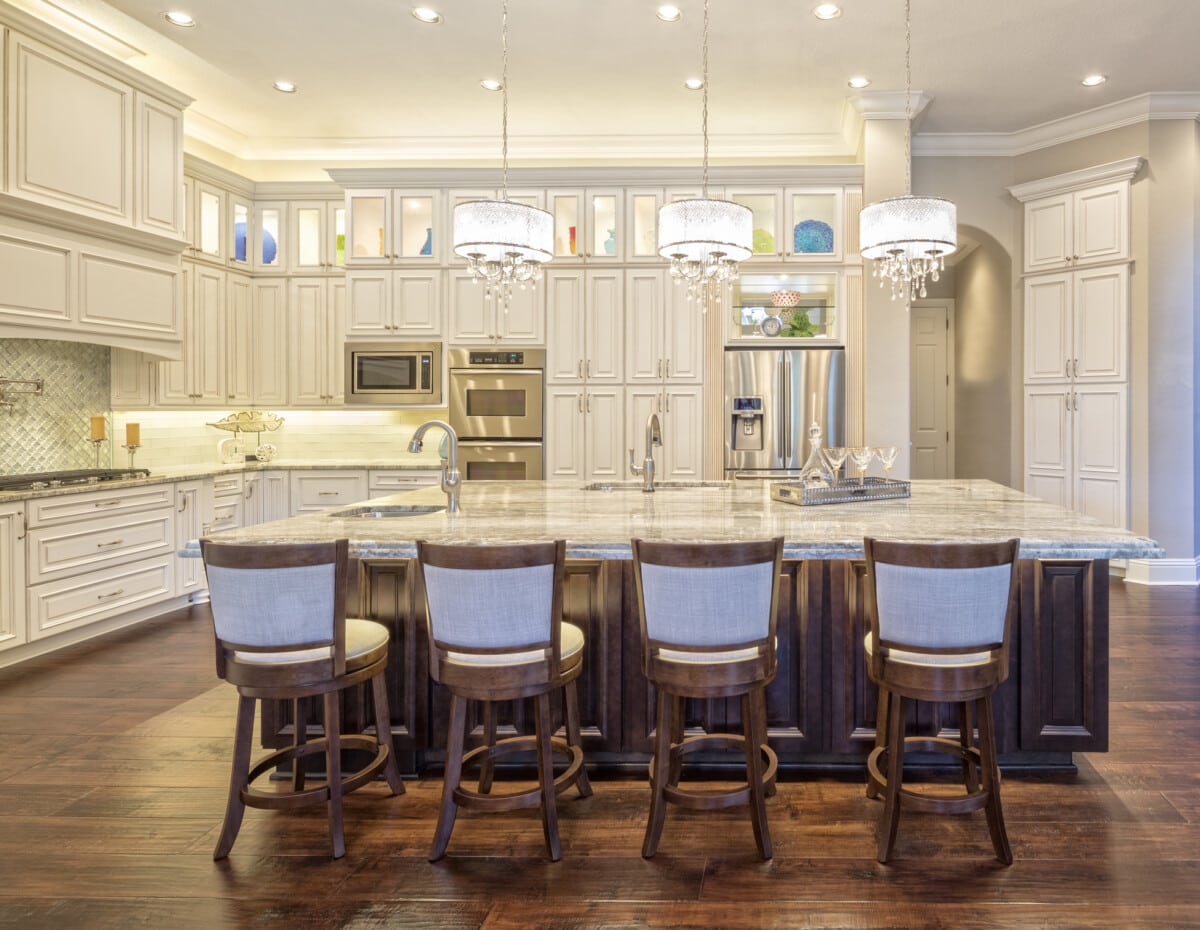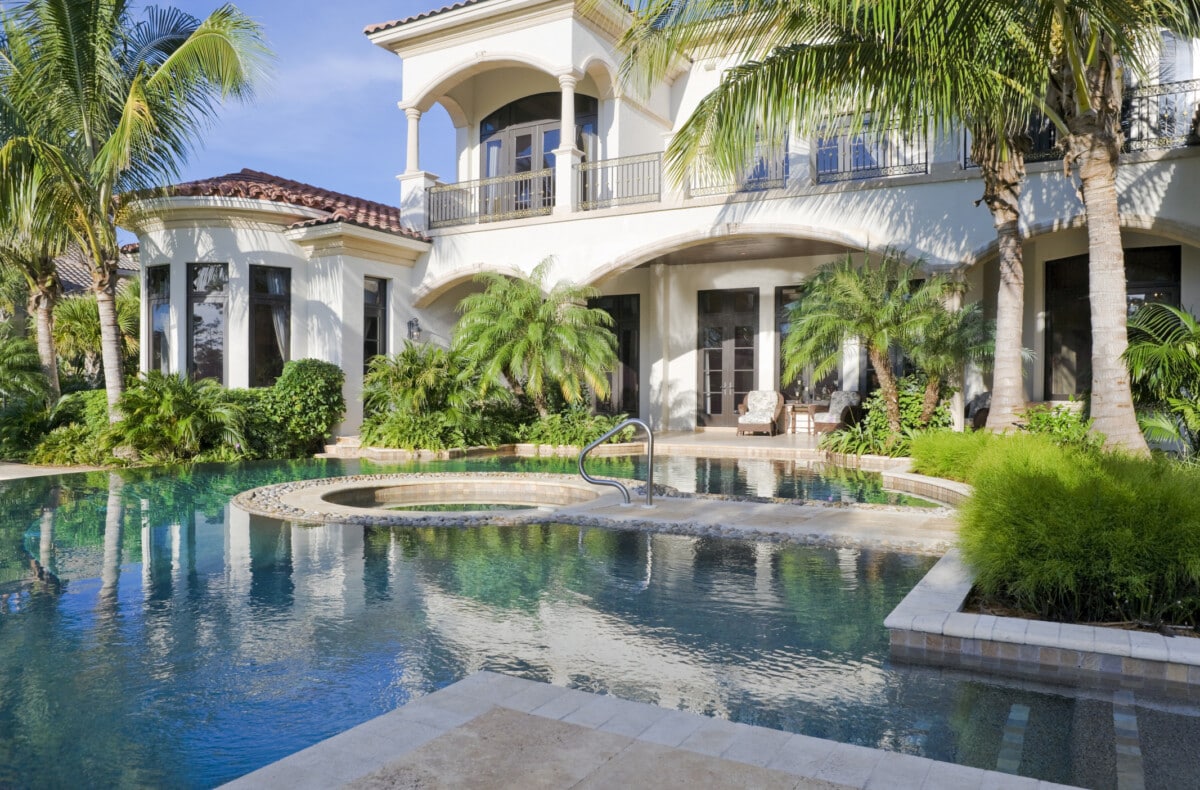Building a House in Florida: Expert Guidance for a Seamless Construction Journey

Embarking on the journey of building your dream home in the Sunshine State of Florida is a thrilling adventure filled with unique considerations. From coastal areas like Naples to bustling cities like Tampa, Florida’s diverse landscapes and distinct climate demand careful planning.
In this Redfin article, we’ve gathered insights from seasoned Florida builders to help you navigate the state’s distinctive home construction landscape.

Essential Pre-Build Tips for Your Florida Home
1. Set a realistic budget for your Florida home construction
Before breaking ground, it’s essential to create a well-thought-out budget that encompasses all aspects of your Florida home construction project. Costs can vary significantly across the state, so research current prices for materials and labor in your specific area.
For instance, building a coastal home in Miami may cost more than constructing a similar-sized house inland. Explore financing options, such as construction loans and programs, and consider setting aside at least 10% of your budget as a buffer for unexpected expenses.
2. Factor in Florida’s weather for a realistic construction timeline
Florida’s weather can be unpredictable, with the threat of hurricanes and heavy rains during certain seasons. Collaborate closely with your builder to create a construction schedule that considers potential weather delays.
3. Understand Florida’s building codes and regulations
Florida’s distinct regions often come with specific building codes and regulations that are essential to understand before initiating your construction project. Building codes not only ensure structural safety but also address unique environmental factors in each area.
For instance, in the hurricane-prone Florida Keys, compliance with stringent wind-resistant building standards is mandatory to safeguard homes against powerful storms. Meanwhile, in regions like inland Florida, where karst terrain and sinkholes are more prevalent, understanding geological codes is vital to ensure safe construction on such ground.
To navigate this complex regulatory landscape, you must be well-versed in permitting processes, local restrictions, and the specifics of your chosen area’s codes. This proactive approach will help you adhere to the necessary guidelines, ensuring a safe and compliant construction process.
5. Research Florida contractors thoroughly
Florida’s construction industry can be competitive, and it’s crucial to conduct in-depth research when selecting a contractor. While Florida does not mandate general contractor licensing, reputation and experience are paramount. Seek referrals and recommendations from local homeowners and visit ongoing construction sites to identify reputable builders. Verify the contractor’s track record and the accuracy of their claims.
6. Local expertise matters
Florida is a state with diverse regions, each with its unique challenges. If you’re building in a specific area, like the Florida Keys or the Everglades, it’s highly beneficial to engage a builder with local expertise. Local builders understand the intricacies of their region, including environmental considerations, permitting challenges, and potential hazards like flooding or high winds.
7. Look for builder associations and certifications
While general contractor licensing isn’t mandatory in Florida, many reputable builders belong to industry associations like the Florida Home Builders Association. Certifications such as Certified Florida Builder can be indicative of a builder’s commitment to quality. Request references from past homebuyer clients to gain a comprehensive view of the builder’s track record.

8. Choose the ideal location in Florida
Selecting the perfect location in Florida is a crucial decision in your home-building journey. South Florida’s coastal areas offer stunning views but come with potential challenges such as hurricanes and flooding, requiring elevated construction and impact-resistant features. Inland regions like Central and Northern Florida need to address extreme heat and rain with proper insulation and energy-efficient design. The Florida Panhandle necessitates hurricane-resistant measures, while the Florida Keys demand a heightened focus on environmental preservation.
Your choice of location significantly influences your dream home’s outcome, so thorough research and expert guidance are vital to ensure a safe and environmentally responsible construction.
9. Explore offsite construction for Florida homes
Offsite construction is a practical solution for building homes in Florida, where extreme weather conditions are a concern. Constructing in a controlled factory environment shields materials and labor from the elements. Choose materials suitable for Florida’s climate, such as impact-resistant windows for hurricane-prone areas.
Construction and design tips for your Florida home
1. Invest in impact-resistant features
Florida faces hurricane threats, so it’s wise to invest in impact-resistant windows and doors. These features not only enhance your home’s safety but can also lead to lower insurance premiums.
2. Siding recommendations for Florida’s climate
“Due to the state’s high humidity, frequent rain, and hurricane potential, opting for materials like fiber cement or vinyl siding is a wise choice, ” recommends model home tours site, Timothy P. Livingston. “These materials are known for their durability, moisture resistance, and low-maintenance attributes, making them ideal for Florida’s conditions. Additionally, selecting light-colored siding to reflect heat and ensure your home stays cooler during the scorching summer days. By following this guidance, you can make a well-informed choice for your home’s siding that aligns with Florida’s challenging climate.”
3. Build with moisture resistance materials
According to Omni Home Ideas, “Building in Florida’s diverse landscape requires thoughtful considerations. To combat humidity and salt-laden air, choose moisture-resistant materials. Embrace open layouts for natural cooling, integrate energy-efficient features like solar panels, rainwater systems, and native landscaping, and balance aesthetics with practicality for inviting, resilient homes.”
4. Enhance your home’s resilience with generators
Curington Homes emphasizes the practicality and peace of mind that comes with installing whole-house generators. “In Florida, where unpredictable weather, especially during hurricane season, often results in prolonged power outages, this solution ensures that daily life remains uninterrupted. Seamlessly integrated into your new home’s electrical system, a whole-house generator guarantees the continuous operation of essential appliances, HVAC systems, and security systems even during outages that can last up to a week or more. This investment significantly enhances the comfort and safety of your Florida home.”
5. Embrace outdoor living in Florida
Florida’s outdoor lifestyle is a vital part of the culture. When designing your Florida home, focus on creating outdoor living spaces that complement your indoor living area. Collaborate with a landscape architect to incorporate elements like native plants, irrigation systems, and outdoor lighting. Features like outdoor kitchens and pools can align with the Florida lifestyle and enhance your property’s appeal.
6. Prioritize energy efficiency for Florida’s climate
The Sunshine State can be energy-intensive, especially during the sweltering summers. Incorporate energy-efficient solutions into your home’s design, such as solar panels and high-efficiency HVAC systems. These eco-friendly additions reduce your environmental footprint and lead to long-term savings on utility bills.
7. Be mindful of exterior decorating
Toscana Homes underlines the significance of exterior decoration in Florida’s challenging climate. “The harsh elements, including intense sun and salt air, accelerate wear and tear more than many northern residents might anticipate. To ensure the longevity of decorative elements like shutters or brackets, the choice of materials is crucial. We recommend powder-coated aluminum for shutters due to its resistance to rust and fading. As lumber costs rise, PVC emerges as an excellent alternative for brackets and other adornments. PVC not only retains its appearance but also boasts long-lasting durability as a plastic material, requiring minimal maintenance.”
8. Safeguard your Florida home with adequate insurance
Florida is prone to natural disasters like hurricanes and flooding. Ensure your new home is adequately insured. Consult with insurance providers to determine the coverage you need, including windstorm insurance, flood insurance, and homeowners’ insurance. Having the right coverage provides peace of mind in the face of unforeseen events.

Ready to build a home in Florida?
Building a house in Florida is a fulfilling endeavor, but it requires meticulous planning and collaboration with experts who understand the state’s construction nuances. By following these insights from Florida builders, you’ll be well-prepared to embark on your home construction journey and transform your dream home into a reality.
The post Building a House in Florida: Expert Guidance for a Seamless Construction Journey appeared first on Redfin | Real Estate Tips for Home Buying, Selling & More.
